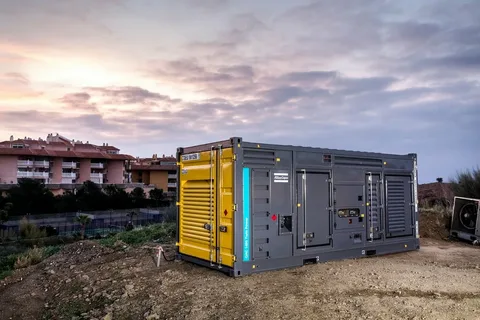Diesel generators provide dependable power during outages, emergencies, or in off-grid settings. For many Florida property owners, these machines are more than a convenience—they are a source of security during unpredictable weather. However, just like any mechanical equipment, diesel generators are not immune to environmental effects. Understanding how various weather conditions influence generator performance is key to ensuring long-term reliability through proper diesel generator repair and maintenance in Florida’s challenging climate.
How Heat and Humidity Affect Generator Systems
Florida’s year-round warmth, combined with high humidity levels, poses particular problems for diesel generators. Excessive heat can cause engine components to expand, leading to increased wear over time. Heat also accelerates the breakdown of engine oil and coolant, making regular fluid checks and replacements an essential part of routine maintenance.
Humidity introduces moisture into the air, which can seep into fuel tanks and engine components. This moisture contributes to corrosion, microbial growth in diesel fuel, and electrical issues if condensation forms in sensitive areas. To mitigate these risks, you can help reduce condensation by keeping the generator in a well-ventilated, covered area and ensuring tanks remain as full as possible.
Cold Snaps and Startup Challenges
While Florida rarely experiences freezing temperatures, unexpected cold fronts can still have a significant impact on diesel generators. Cold weather affects battery performance, making startup more difficult. It also thickens diesel fuel, which can reduce flow and lead to clogs or incomplete combustion. If you anticipate colder conditions, you can preserve generator performance during these rare temperature drops by installing a block heater or using winter-grade diesel additives.
Rain and Flood Exposure
With Florida’s frequent thunderstorms and the risk of hurricanes, water intrusion is a leading cause of generator damage in the state. Water exposure can lead to electrical shorts, rusted components, and compromised engine performance. Diesel generators should always be installed on elevated pads in areas with proper drainage.
Enclosures play a significant role in weather protection. Water-resistant, sound-attenuated enclosures shield the unit from heavy rain while reducing noise levels. All generator housings should be sealed properly, with no gaps or worn-out gaskets that allow moisture entry.
Windborne Debris and Physical Damage
Storm-force winds bring more than rain. Flying debris, falling branches, or even roof material can damage exposed generators. Generators should be placed in areas with limited exposure to large trees or unsecured outdoor items. Protective barriers or enclosures with reinforced framing offer additional security during strong wind events.
Salty Air and Coastal Corrosion
For Florida residents living near the coast, salt-laden air poses an added risk. Salt accelerates the oxidation process, causing metal surfaces and sensitive electrical components to corrode more rapidly than in inland environments. Regular washing and visual inspection of the generator’s exterior help prevent salt buildup. Anti-corrosive coatings may also be applied to metal parts to slow down the wear caused by salty air.
Year-Round Maintenance to Support Durability
Regardless of the season, consistent diesel generator maintenance is one of the most effective ways to extend the service life. A professional inspection schedule should include fluid analysis, battery testing, filter replacement, and electrical system diagnostics. In Florida’s humid and storm-prone climate, preventive maintenance helps ensure that the generator operates when it is most needed.
Remote monitoring systems can also be a helpful investment. These tools enable property owners to track performance data, detect irregularities early, and minimize the risk of unexpected failures during adverse weather conditions.
Florida’s diverse weather patterns, ranging from extreme heat and heavy rain to rare cold spells and coastal salt exposure, can significantly impact diesel generators. Taking proactive measures to protect these systems, along with scheduling consistent diesel generator repair and maintenance, helps keep power accessible in times of need. For professional support and personalized service, Mid Florida Diesel offers a trusted resource for maintaining generator performance and reliability throughout the seasons.

